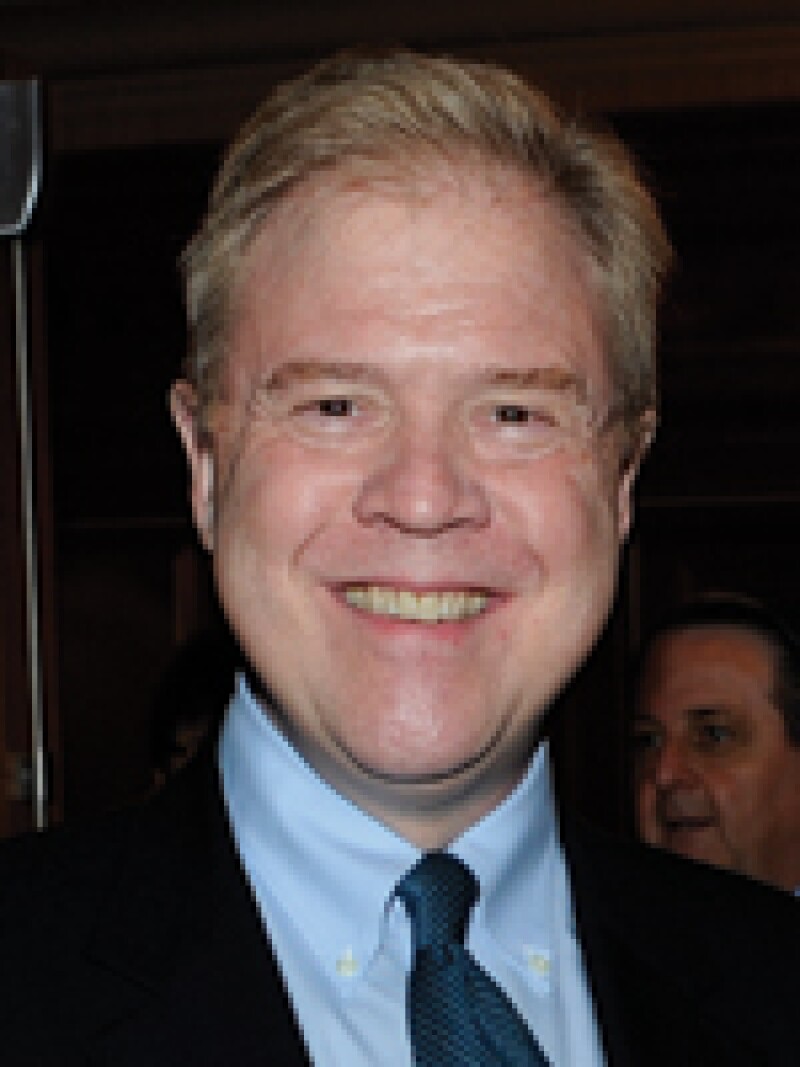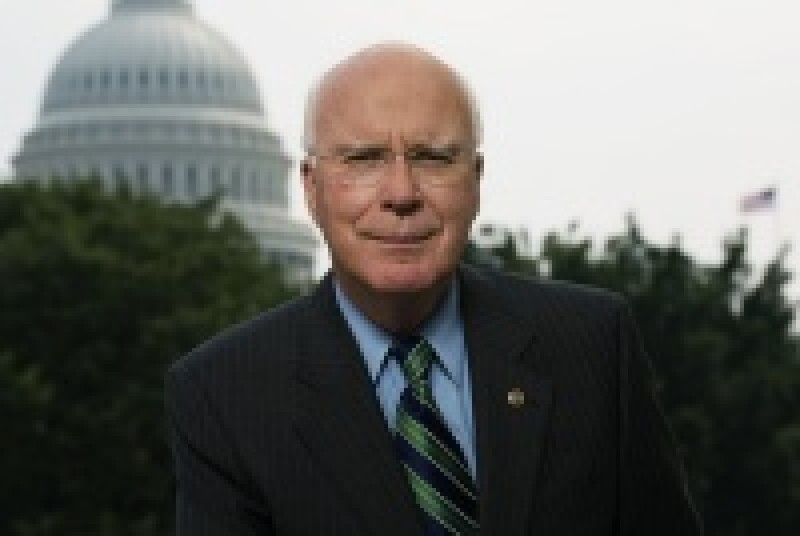
Last week was the busiest week for patent-related action at the Supreme Court that many will have been able to recall. On April 28, it heard oral arguments in Nautilus v Biosig, on April 29 it issued two decisions in Octane v Icon and Highmark v Allcare, and on April 30 it heard oral arguments in Limelight v Akamai.
The two related decisions on fee shifting issued on April 29 could prove to have the biggest long-term ramifications. Some believe they clear the way for patent reform to be passed.
Todd Dickinson, executive director of the AIPLA (below left), told me that the decision reminded him of the situation during discussions around the America Invents Act when damages were discussed for three years before a Supreme Court decision made the issue moot. Suddenly, the negotiations were no longer held up and the act passed.
In scrapping the two-step test established in Brooks Furniture in 2005, Dickinson says the Supreme Court has again done something similar. Fee shifting has proved a thorny issue for the Senate Judiciary Committee, with the mark up of Senator Patrick Leahy’s patent reform pushed back multiple times as a result.
“The bottom line is the Supreme Court has taken the fee shifting issue off the table,” said Dickinson. “Those entities that wanted a more aggressive approach to fee shifting all filed briefs in the Supreme Court saying if you decide this our way you’ll solve the problem. Well, the Supreme Court solved the problem for them. Fee shifting can come out of the legislation. They got what they wanted. I’m not sure they are going to take it but they should take it in my opinion.”
He adds that legislation is not the best way to tackle the fee shifting issue anyway.
“More to the point, the Supreme Court has said: ‘Look folks we know the problem here, we understand it. The CAFC was wrong to create rigid rules. Congress should not be trying to craft a rigid rule either. Rigid rules don’t work. You need flexibility here. We the Supreme Court are on the job.’ It was 9-0. I believe the Supreme Court is trying to say don’t try to create another problem by making it so rigid,” said Dickinson.

The Supreme Court said an exceptional case that qualifies for fees to be shifted is “simply one that stands out from others with respect to the substantive strength of a party’s litigating position (considering both the governing law and the facts of the case) or the unreasonable manner in which the case was litigated.”
Scott McKeown, partner at Oblon Spivak, commented that the Octane decision may have mooted the Senate’s struggle around fee shifting to balance the needs of innovators to enforce patents and the need to rein in patent litigation abuse.
"With the Octane decision making clear that the district courts may be more flexible in awarding sanctions for frivolous patent suits, and the companion case of Highmark Inc v Allcare…clarifying that sanction decisions are to be reviewed under an abuse of discretion standard, it would seem that the highest court has delivered a ready-made solution to the current legislative gridlock,” McKeown wrote in a blog post. “Stay tuned, the bottleneck may have been broken.”
Or maybe not...
So fee shifting can now be taken off the table in negotiations and patent reform can move forward, right? Not so fast.
One reaction to the news out of the Supreme Court could be that reform is no longer so pressing.
“These decisions also come as the Senate is working out a compromise on a new fee-shifting provision to the patent statute,” said Andrew Williams from McDonnell Boehnen Hulbert & Berghoff on the Patent Docs blog. “It might be prudent, therefore, to put legislative reform efforts on hold (especially with regard to § 285), until the impact of these decisions can be ascertained.”
On the other hand, supporters of reform say the Supreme Court has done nothing to stop the need for legislation to curb patent abuse. The Electronic Frontier Foundation’s Daniel Nazer in a blog post declared the Supreme Court decisions “bad news for patent trolls who bring weak cases and use the high cost of defence to extort settlements”. But he added it was only a “step in the right direction” and said broader legislative reform curbing patent troll abuse was still needed, including fee-shifting provisions.
“We can expect opponents of patent reform to argue that today’s decisions mean that we should delay, or even abandon, efforts to pass new patent legislation,” said Nazer. “But this ignores the fact that current proposals include many additional reforms – like heightened pleading and end-user protections. And the fee shifting proposals before Congress would be stronger than current law. We need patent reform on multiple fronts – the courts, the Patent Office, and Congress – to deliver real change.”
The day after the news out of the Supreme Court the Coalition for Patent Fairness wrote a letter to Senator Leahy (right) and Senator Grassley reiterating their call for patent reform including demanding any draft reform include a provision “requiring more litigants to the prevailing party’s legal fees and costs when a lawsuit alleging infringement is not objectively reasonable in law and fact”.

For his part, far from concluding that fee shifting was no longer part of the debate and a patent bill could move forward, Senator Leahy responded by cancelling mark up of his bill for a fifth time on May 1. Mark up of the bill is not looking likely before May 22 now, with time quickly running out.
Deep political divisions still remain that are making previous claims that patent reform would be a bipartisan issue look optimistic and premature. Trial lawyers, for instance, hold a lot of influence over Democrats and would resist any moves towards fee shifting.
The AIPLA’s Dickinson said people need to be careful about what they are trying to achieve in discussions around fee shifting, and patent reform in general. He said legislation should be crafted to behaviour and not to certain types of actors.
“The standard I apply in this whole process, and I wish they would apply a similar standard, is: will the sole inventor, the small company, the start-up who has a patent and a good idea that they are just bringing to the market and they are finding out they have a good case for infringement, is that little guy going to be able to find that good but mid- to small-size law firm to take his case?”
Dickinson said malpractice insurance rates could go up for mid-sized law firms that are taking these kinds of cases on.
“That is what I am concerned about and I have plenty of members that fit that category. Are their malpractice rates going to go up is a function of all this? I know there is a problem. I know there is bad behaviour out there. But the question I have is: is the legitimate little guy and the small to medium law firm that takes those guys’ cases going to be able to get justice and survive?”
At this rate, however, Dickinson needn’t worry about what effect reform will have on AIPLA members.









